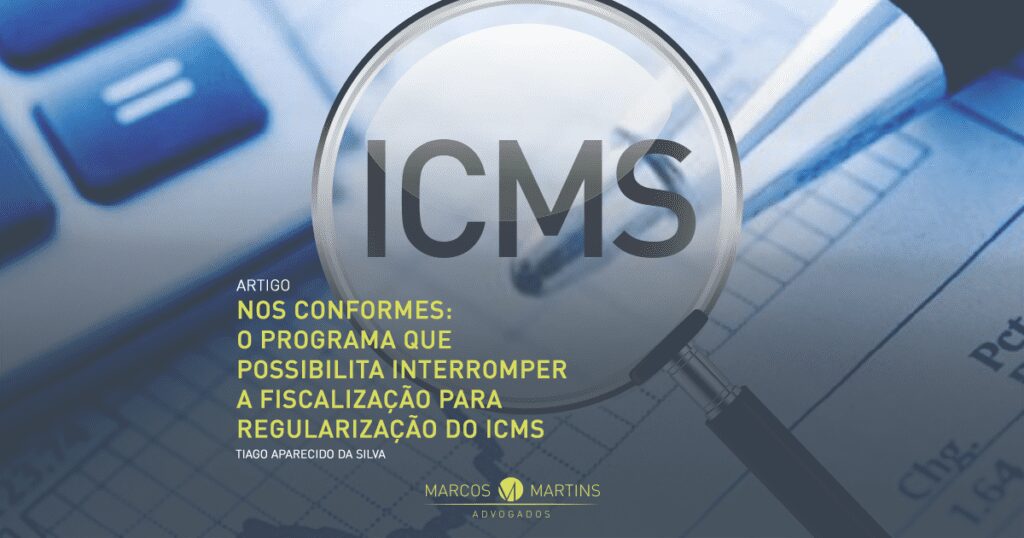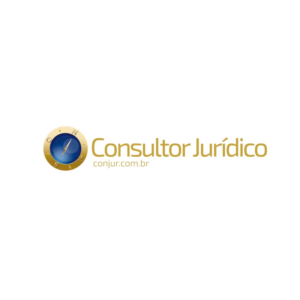Tiago Aparecido da Silva
Lawyer at Marcos Martins Advogados
In 2018, the Tax Compliance Stimulus Program – “Nos Conformes”– was established, defining principles for the relationship between taxpayers and the State of São Paulo.
From the outset, the legislator noted that this law “[…] creates conditions for the continuous and growing construction of an environment of mutual trust between taxpayers and the Tax Administration, through the implementation of concrete measures inspired by the following principles:”[1]
- I – Simplification of the state tax system;
- II – Good faith and predictability of conduct;
- III – Legal certainty through objectivity and coherence in the application of tax legislation;
- IV – Publicity and transparency in the disclosure of data and information;
- V – Fair competition between economic agents.
Note that the principles dealt with by the law in question are worthy of praise, as they demonstrate a break in the treatment of taxpayers, with the appearance of the emergence of a healthier relationship.
All of the principles presented are of great importance, but for the topic addressed here we are interested in the principles of good faith, predictability of conduct and legal certainty due to the objectivity and coherence in the application of tax legislation.
It is worth remembering, albeit briefly:
- Good faith:
- Righteousness, the conviction of acting or behaving fairly and loyally towards someone.
- Predictability of Conduct:
- Acting in a way that can be foreseen, expected.
- Legal Security:
- The certainty of law and protection against change.
The legislation then sets out the guidelines that will be used to implement these principles: I – facilitate and encourage self-regularization and tax compliance; II – reduce compliance costs for taxpayers and III – improve communication between taxpayers and the Tax Administration.
It is certain that any relationship between the TAXPAYER and taxpayer that applies the principles and guidelines mentioned above will bring mutual benefits, either because of the end of the famous “collection drive” or because of the end of new “persistent debtors”.
The FISCO has adopted a stance focused on guidance, providing subsidies for taxpayers to carry out their activities more productively, including in relation to their tax obligations.
Article 14 of the program expressly states that the Treasury Department will encourage ICMS taxpayers to self-regulate, presenting the procedures available to them. Check it out:
- Article 14 – The Treasury Department will encourage ICMS taxpayers to self-regulate through the following procedures, without prejudice to other forms provided for in the legislation:
(…)
- § Paragraph 1 – At the discretion of the Finance Department, taxpayers may be notified of evidence of irregularities, in which case they will be exempt from the penalties provided for in article 85 of Law 6.374, of March 1, 1989, provided they remedy the irregularity within the period indicated in the notification.
- § Paragraph 2 – The procedures provided for in this article do not constitute the start of a tax action and do not remove the effects of the spontaneity provided for in article 88 of Law no. 6.374, of March 1, 1989.
Based on what has been mentioned so far, can taxpayers, after being notified to submit information or documents, make use of what the “Nos Conformes ” program determines in order to self-regulate?
According to the São Paulo State Court of Justice, yes!
In a unanimous decision, the Sixth Chamber of Public Law of the São Paulo State Court of Appeals recognized the taxpayer’s right to self-regulate after receiving a tax notice related to the start of an inspection, and also ordered that the inspection be suspended.
The judges held that the notification received by the taxpayer would not be able to remove the spontaneity and initiate the tax action, under penalty of negating the objectives of the “Nos Conformes” program established by Complementary Law no. 1,320/2018:
Thus, to consider that the notification received by the aggravating party is intended to remove its spontaneity, is to deny the objectives intended by Complementary Law no. 1,320/18, that is, to encourage taxpayers to self-regulate, which does not seem a reasonable interpretation.
Although it was not expressly mentioned in the decision, it is obvious that the judges took into account the principles and guidelines set out in the legislation affecting the case in order to issue that judgment (a decision by the collegiate body of a court, which differs from a sentence).
It would not be acceptable, or even coherent, to state that the Treasury Department is seeking an environment of trust with taxpayers, encouraging self-regularization, implementing measures based on good faith, predictability of conduct and legal certainty through objectivity and consistency in the application of tax legislation, but to decline requests to remedy any irregularities.
By denying requests of this nature, the Treasury Department will be failing to apply the guidelines set out in Complementary Law no. 1320/2018, as it will not be facilitating and encouraging self-regularization and tax compliance, reducing compliance costs for taxpayers or improving communication with taxpayers.
Therefore, there is no doubt as to the taxpayer’s right to self-regulate, under the terms of Complementary Law No. 1,320/2018, even after receiving the tax notice. Marcos Martins Advogados has been working in the area of taxation for over 35 years, click here to see all our areas of practice.
[1] BRAZIL. Complementary Law No. 1,320, of April 6, 2018. Establishes
the Tax Compliance Incentive Program – “Nos Conformes”,
defines principles for the relationship between taxpayers and the State of
São Paulo and establishes tax compliance rules. Legislative Assembly of the State of São Paulo, May 15, 2018.








